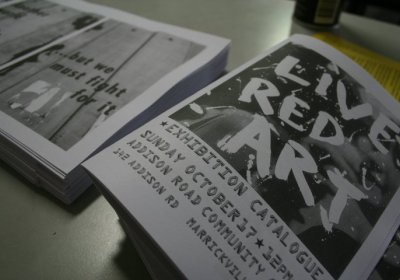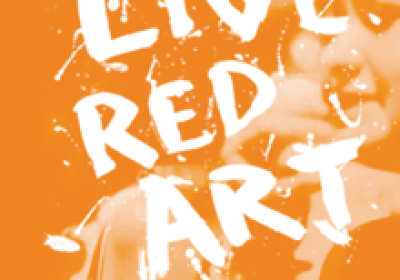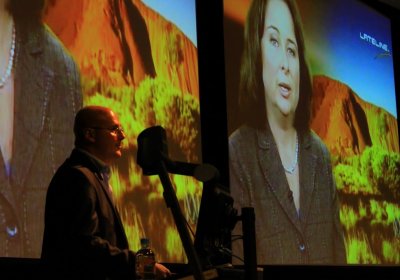Natural gas is a finite resource. Once it is depleted, it cannot be renewed. It is extracted from coal beds and consists primarily of methane. Methane is 72 times worse than carbon dioxide — the most well-known carbon pollutant — as a greenhouse gas.
The City of Sydney plans to use natural gas as the primary fuel to transition away from coal-fired electricity towards low-carbon energy by using a method of energy production known as trigeneration.
Kelly Ryan
One of Australia’s richest men, mining magnate Andrew “Twiggy” Forrest, used Australian television on October 24 to send an address to the nation about his “Generation One” campaign, which aims to “close the gap” between Indigenous and non-Indigenous Australians.
I don’t have any air-time, but I do have page space. This is my address to Twiggy.
* * *
Dear Mr Forrest,
I think we have something in common (yes, I’m surprised too).
Sydney’s inner-west played host to the inaugural Live Red Art event. The festival of radical art drew a crowd of more than 400 people to the Addison Road Community Centre in Marrickville on October 17.
“I want to make films with a social purpose”, Newcastle-based film maker and activist Simon Cunich told Green Left Weekly. “I think every one has got a responsibility to persuade people and to inspire activism.”
Cunich, a member of Socialist Alliance, is completing a certificate in Screen and Media.
Newcastle is the largest exporter of coal in the world and Cunich said this “environmental destruction” has led to a hub of activism in opposition.
The use of art as a commentary on social and political injustice is becoming increasingly innovative. Artists are embracing their varied mediums to share stories and ideas calling for a challenge to the status-quo.
From radical independent art, to mainstream artists using their influence, the fusion of social justice and art has been embraced by photographers, musicians, painters, filmmakers, fashion designers and more.
Many commercial artists who have enjoyed mainstream success have used their reach to convey messages of protest and encourage social change.
A 2006 episode of the ABC’s Lateline program led directly to the greatest human rights abuse in the past half century, said founder and former editor of the National Indigenous Times Chris Graham, at a public forum of 150 people in Sydney on September 3.
The Greens could have more power in the Australian parliament than ever before, after the federal election on August 21. Achieving the balance of power in the Senate is within reach for the Greens, meaning that the government would have to negotiate an agreement with either the opposition party or the Greens to pass legislation.
The Greens currently share balance of power with Family First Senator Steve Fielding and independent Nick Xenophon.
“We have shown a responsibility that the Coalition has shunned”, said Bob Brown, leader of the Australian Greens.
- Previous page
- Page 5






